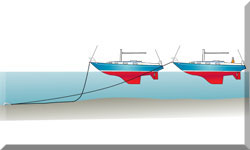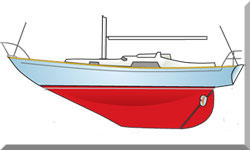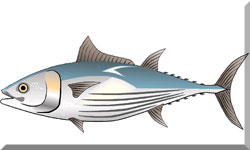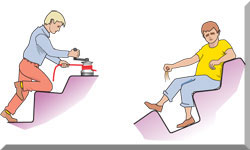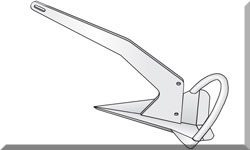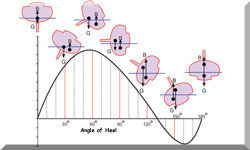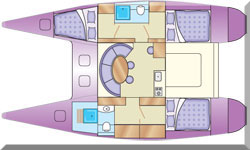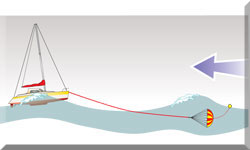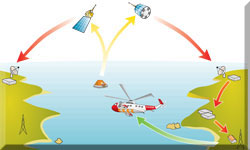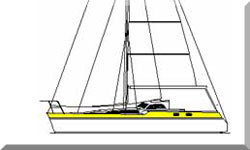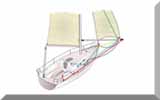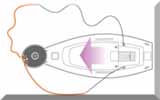- Home
- Offshore Sailing
- Watch Keeping
- Watchkeeping Duties
Watchkeeping Duties at Sea: Your Questions Answered
On a sailboat, watchkeeping schedules, or watch systems, are crucial for safety and navigation, especially at night. They involve rotating crew members to ensure someone is always on deck, maintaining a lookout and managing the vessel.
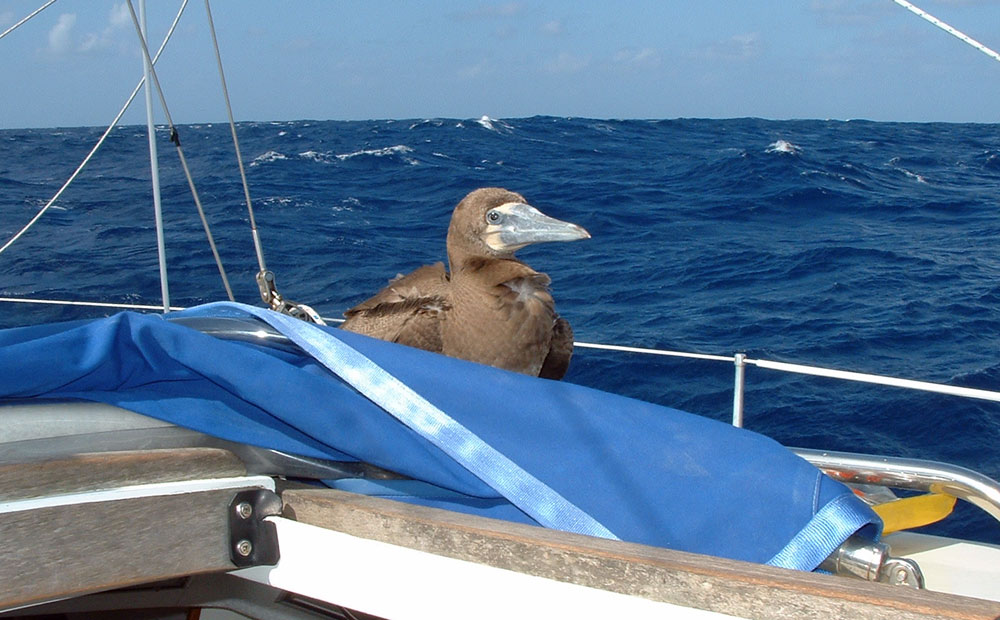 No, you can't rely on him
No, you can't rely on himWhat is the best watchkeeping system for a small crew?
What is the best watchkeeping system for a small crew?
For a small crew, the best watchkeeping system depends on the crew size. A two-person crew can manage with 4-hour shifts, though long trips might make this tiring. Shorter shifts at night could help maintain alertness.
With a larger crew, you have more flexibility to rotate schedules, ensuring everyone gets enough rest. It’s essential to stay adaptable; calm weather might allow for longer shifts, but in rough conditions or areas with heavy boat traffic, shorter shifts are safer.
Some crews also find it helpful to overlap shifts slightly. This eases the handover process and allows two people to manage challenging situations like navigating bad weather or approaching land.
How can solo sailors comply with maritime regulations for watchkeeping?
How can solo sailors comply with maritime regulations for watchkeeping?
For solo sailors, complying with maritime watchkeeping regulations often relies on technology. Tools like AIS alarms, radar, and chartplotters provide real-time awareness of hazards and traffic. Being prepared for emergencies is crucial, so safety gear should always be within reach. Studying traffic patterns using apps and software can help solo sailors anticipate busy areas, such as shipping lanes, and adjust their plans accordingly.
And nothing beats a small kitchen timer set to wake you up at regular intervals.
What are the key duties of a watchkeeper?
What are the key duties of a watchkeeper?
The role of a watchkeeper involves multiple tasks. Steering the vessel and keeping it on course using tools like a compass, GPS, or autopilot is essential.
Watchkeepers must stay alert to detect other vessels, debris, wildlife, or weather changes that might impact navigation.
Regularly checking navigation systems such as radar, AIS, and depth sounders ensures the vessel's position and any potential hazards are monitored.
Adjusting sails to match changing wind conditions is another key duty, as is recording detailed log entries during their watch, noting the boat's position, weather updates, and important sightings.
What are the best practices for watch handovers?
What are the best practices for watch handovers?
Smooth handovers are essential for effective watchkeeping. Outgoing watchkeepers should provide detailed updates on the vessel's position, course, nearby traffic, and weather conditions.
Both incoming and outgoing watchkeepers should check navigation equipment together to ensure continuity. It’s important that the new watchkeeper is well-rested and alert. If they’re fatigued, giving them a short rest or verifying their observations can help prevent errors.
How can watchkeeping be adapted for coastal versus offshore sailing?
How can watchkeeping be adapted for coastal versus offshore sailing?
Watchkeeping varies between coastal and offshore sailing. Coastal sailing demands constant vigilance due to hazards like buoys, reefs, shallow waters, and increased traffic. Skippers often rely on visual navigation, using tools like binoculars and charts.
Offshore sailing shifts the focus to instruments such as GPS, AIS, and radar to detect hazards and weather changes that aren’t immediately visible. Offshore sailors also tend to give extra attention to weather forecasts and wind patterns, adjusting their plans proactively based on the conditions.
What is the ideal duration for a watch?
What is the ideal duration for a watch?
The ideal watch duration depends on several factors. Managing fatigue is critical, as tired crew members can make poor decisions. In difficult conditions, shorter shifts help keep everyone sharp. Environmental factors like extreme heat or cold may also call for shorter watches to avoid exhaustion. Aligning shifts with natural sleep cycles can improve recovery and minimize tiredness during long trips.
How can watchkeeping be managed during night sailing?
How can watchkeeping be managed during night sailing?
Night watches bring unique challenges. Reduced visibility means it’s important to rely on tools like radar and AIS while occasionally scanning the horizon with binoculars to spot obstacles.
Communication should be quiet to avoid disturbing off-duty crew members, and tasks like updating charts can help the watchkeeper stay focused and alert during quieter moments.
What tools and technology can assist with watchkeeping?
What tools and technology can assist with watchkeeping?
Various tools and technology can assist with watchkeeping. AIS helps track nearby vessels and avoid collisions, while radar can spot ships, debris, and weather patterns even in poor visibility.
Autopilot systems or self-steering systems steer the vessel, allowing watchkeepers to focus on monitoring their surroundings and instruments.
Chartplotters provide clear navigation data to track the vessel's position, and alarms can alert the crew to potential dangers, ensuring immediate action when needed.
How can watchkeeping systems account for crew morale and physical fitness?
How can watchkeeping systems account for crew morale and physical fitness?
Crew morale and physical fitness play an important role in watchkeeping. Schedules should be flexible and adjusted based on energy levels to prevent over-fatigue. Regular breaks and meals are important for keeping the crew energized. Activities that build teamwork and trust can also boost morale, helping the crew handle challenges with a positive attitude.
What are the legal implications of failing to maintain a proper watch?
What are the legal implications of failing to maintain a proper watch?
Failing to maintain a proper watch can have serious consequences. Without a proper lookout, vessels risk collisions with other boats or objects, potentially causing damage, injuries, or fatalities.
Violating Rule 5 of the COLREGS can lead to fines, legal liability in accidents, or even detention of the vessel. Additionally, not maintaining a watch could invalidate insurance claims, leaving the skipper financially responsible for any losses.
These risks underline the importance of staying vigilant and adhering to proper watchkeeping practices.
Recent Articles
-
Which Type of Boat Fridge Is The Most Efficient?
Apr 24, 25 05:06 AM
The top opening boat fridge is reputed to be more efficient than the front opening type, but that may not be the case - and here, amongst other boat refrigeration considerations, is why -
Multihull Autopilot Selection is Not Straightforward
Apr 19, 25 01:25 PM
Whether its for a catamaran or a trimaran, tiller or wheel steered, a multi hull autopilot must be endowed with specific performance characteristics... -
Wheel-Steering Autopilots: Your Questions Answered...
Apr 18, 25 03:45 PM
Whatever your question, you should find the answer here

